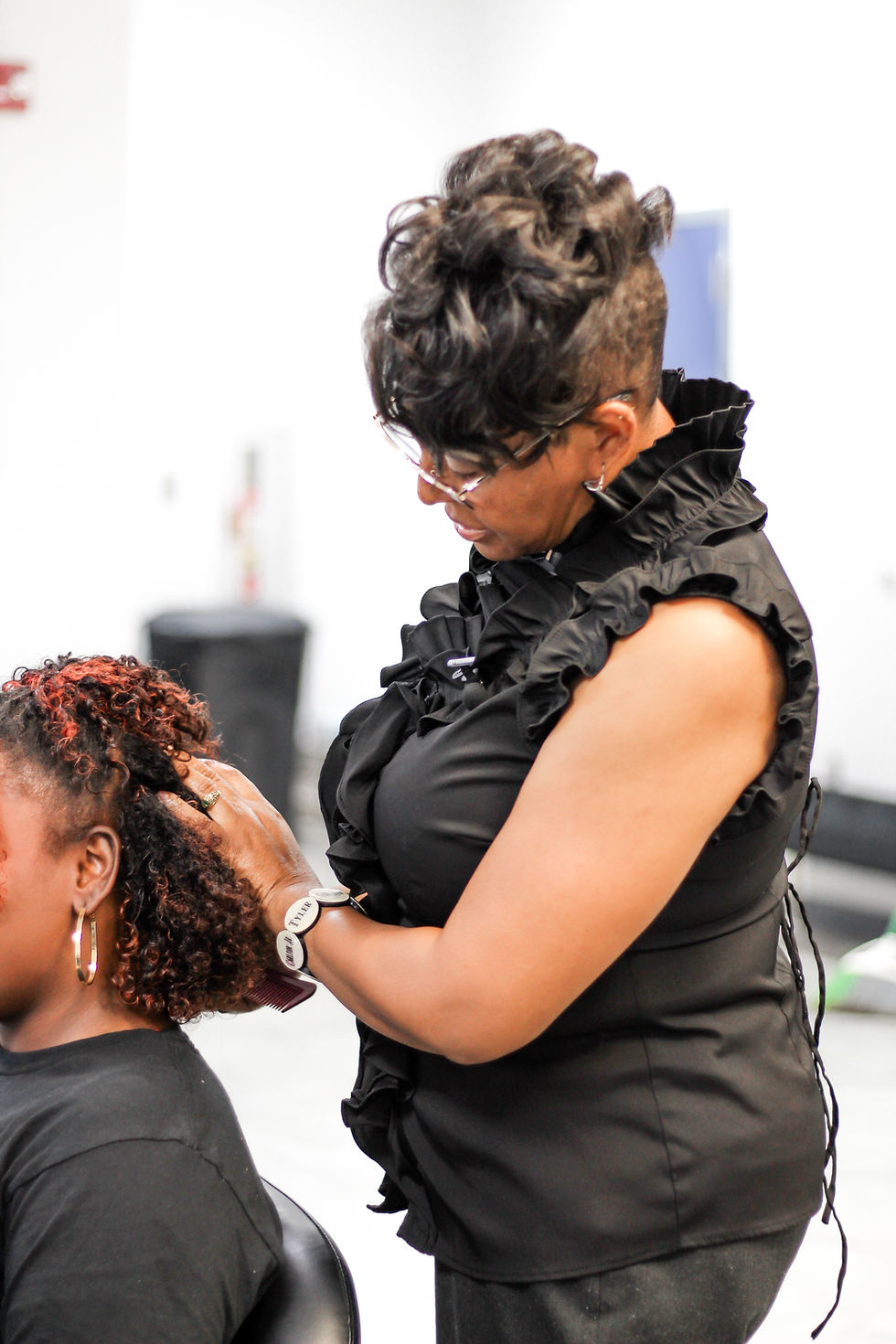How Medication Can Impact Hair Treatments and Processes
- Ashley Stahl
- Jun 28, 2024
- 3 min read
Updated: Jul 3, 2024
LaTaya Aaron is known for her expertise in handling hair and her ability to bring out the best in her clients' hair, regardless of its condition. She offers valuable advice during consultations, inquiring about clients' hair-washing frequency, the products and styling tools they use, and importantly, their medications. She emphasizes that medications, whether over-the-counter or prescription, can change the color, appearance, texture, and thickness of one's hair, as well as interfere with the hair's ability to take on color or other treatments applied by a stylist. This is particularly relevant for clients with natural hair, which is one of LaTaya's areas of specialty.

LaTaya has shared that while some consultations result in delivering what the client wants in one session, others require more steps. Much like planting a seed, fertilizing and watering it, depending on the condition, hair sometimes requires multiple steps before the “harvest.” It’s this approach that earned her the nickname “growing hands.”
The Connection Between Medication and Hair Health
Studies have shown that certain drug treatments and medications can alter the color, appearance, texture, and thickness of your hair. Some of the side effects of these drugs include making your hair curlier, inducing hair loss, or changing your brown hair to red. The drug interaction list includes both over-the-counter and prescribed medications. Medications ranging from skin care treatments to antidepressants or oral contraceptives and ibuprofen can influence the health of your hair.
The Cause of the Side Effects
We won't delve into all the details of the science behind the effects of the medicine, but we can give a brief overview. Your hair grows through different stages, with the growth phase (anagen) lasting three to four years and the resting phase (telogen) when hair stops growing. Not all hairs are in the same stage at the same time. Some medications can cause hair loss by prematurely pushing hair into the resting phase within a couple of months of taking them. These drugs may also affect hair color and texture by interfering with the natural growth cycles.
How Medications Affect Hair Treatments
LaTaya said that medications can influence the outcome of hair treatments in various ways. Here are a few examples she provided:
Chemical Treatments (Relaxers and Perms)
Medications that dry out your hair or alter its natural oil production can make it more susceptible to damage from chemical treatments. This can lead to breakage or an uneven result.
2. Hair Coloring
If your medication causes hair thinning or alters hair texture, you might find that hair dye doesn't take as well or fades more quickly. It's important to inform your stylist about any medications you're taking so they can adjust the treatment accordingly.
3. Keratin Treatments
Medications that cause dryness or brittleness can make hair more prone to breakage during keratin treatments. Your stylist may recommend a more gentle approach or additional conditioning treatments to protect your hair.
4. Hair Extensions
If you're experiencing hair thinning due to medication, extensions may place additional stress on your hair and scalp. It's crucial to discuss this with your stylist to find the best approach that minimizes damage.

Tips for Managing Hair Health While on Medication
If you’re taking medication that affects your hair, LaTaya advises the following tips to keep your hair healthy:
1. Communicate with Your Stylist: Always inform your stylist about any medications you're taking. This helps them tailor treatments to suit your hair's current condition.
2. Maintain a Healthy Diet: Eating a balanced diet rich in vitamins and minerals supports overall hair health. Foods high in omega-3 fatty acids, biotin, and vitamins A, C, and E are particularly beneficial.
3. Use Gentle Hair Care Products: Opt for sulfate-free shampoos and conditioners, and avoid products with harsh chemicals that can further dry out or damage your hair.
4. Stay Hydrated: Drinking plenty of water helps maintain your hair’s moisture balance, reducing dryness and brittleness.
5. Consider Supplements: Consult with your healthcare provider about taking supplements like biotin, collagen, or omega-3 fatty acids to support hair health.

Medications can significantly impact your hair and the results of your hair treatments. By understanding these effects and working closely with your stylist, you can ensure your hair remains healthy and beautiful. LaTaya advises always communicating openly about your medications and taking proactive steps to protect and nourish your hair. Her extensive experience and keen insight into the nuances of hair health make her consultations invaluable. She emphasizes the importance of a holistic approach to hair care, considering every aspect of a client's lifestyle, including medication use, to achieve the best possible outcomes. With LaTaya’s expertise, you can navigate the complexities of hair treatments while managing the effects of medication, ensuring your hair looks and feels its best.

Comments